Downloadable educational resource
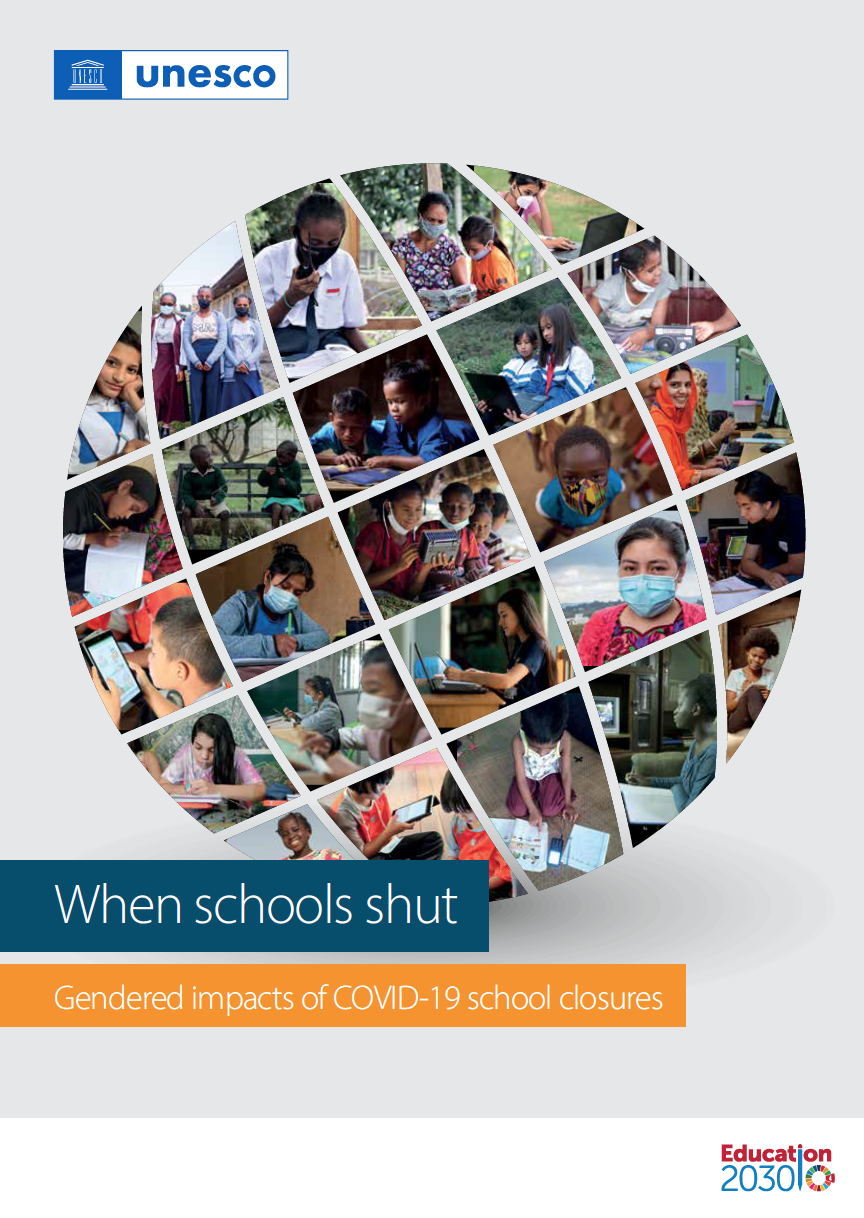
A new UNESCO global study, When Schools Shut: Gendered impacts of COVID-19 school closures, exposes failure to factor in gender in COVID-19 education responses and widening gaps in access to quality education following school closures.
Citing some 90 countries, including 20 in the Asia-Pacific region, the study shows that despite governments' and partners’ swift responses to school closures, remote learning strategies in most countries failed to account for gender-based considerations and barriers that children face at home. Research in local communities in Bangladesh, Cote d’Ivoire, Kenya, Mali and Pakistan demonstrates widespread limitations of access to tech-based remote learning, and increased household responsibilities and demands for labour that have reduced children’s time to study. The closures have also severely impacted children’s mental health, resulting in anxiety, isolation, and fears of increased violence – particularly among the most marginalized and those in contexts of crisis.
A growing number of children are at risk of not returning to school. The study calls for the education community to tackle disengagement in education and low return-to-school rates in vulnerable communities by understanding and addressing gender disparities and inequalities in policies and programme delivery, for example through targeted financial support to families, the deployment of no-tech and low-tech remote learning solutions, and equipping schools to provide psychosocial support.
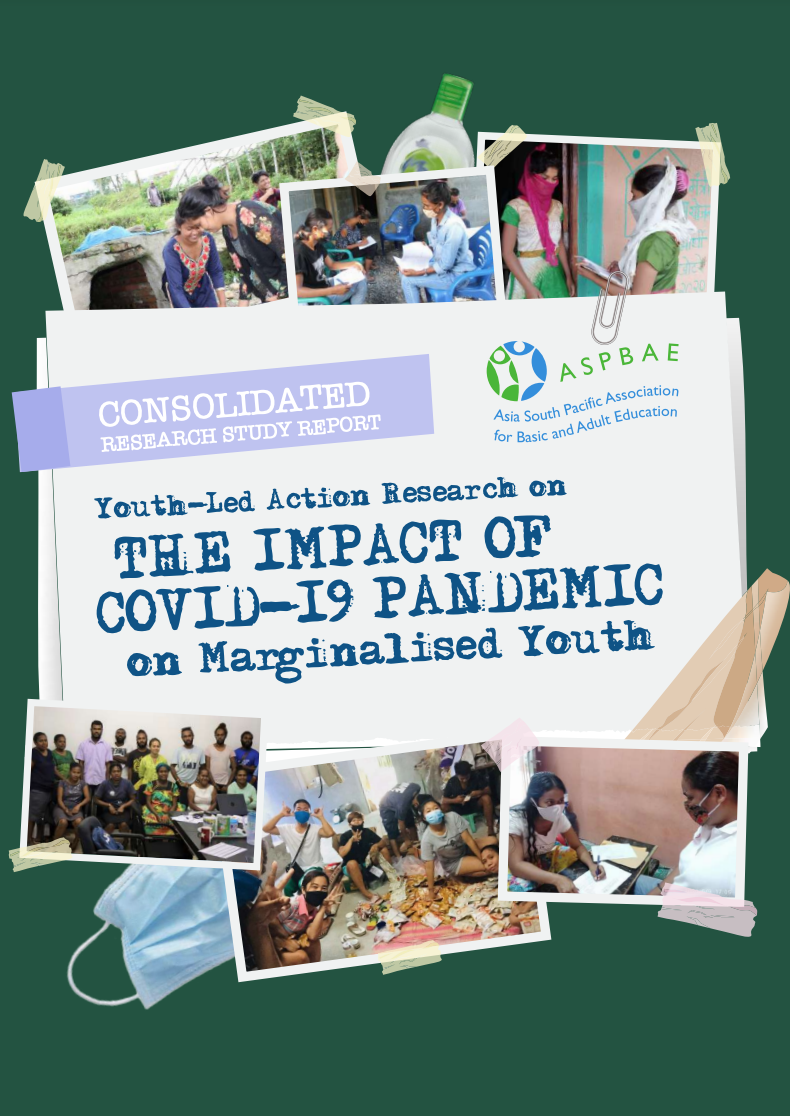
Author: Asia South Pacific Association for Basic and Adult Education (ASPBAE)
Audience: Policymakers and General Public
Languages: English
Geographical Scope: India, Nepal, Bangladesh, Sri Lanka, Indonesia, Philippines, Mongolia, Timor-Leste and Vanuatu
This study reports the findings from the Youth-led Action Research on the Impact of COVID-19 Pandemic on Marginalised Youth conducted by members of the Asia South Pacific Association for Basic and Adult Education (ASPBAE) in nine countries consisting of India, Nepal, Bangladesh, Sri Lanka, Indonesia, Philippines, Mongolia, Timor-Leste and Vanuatu between May and August 2020.
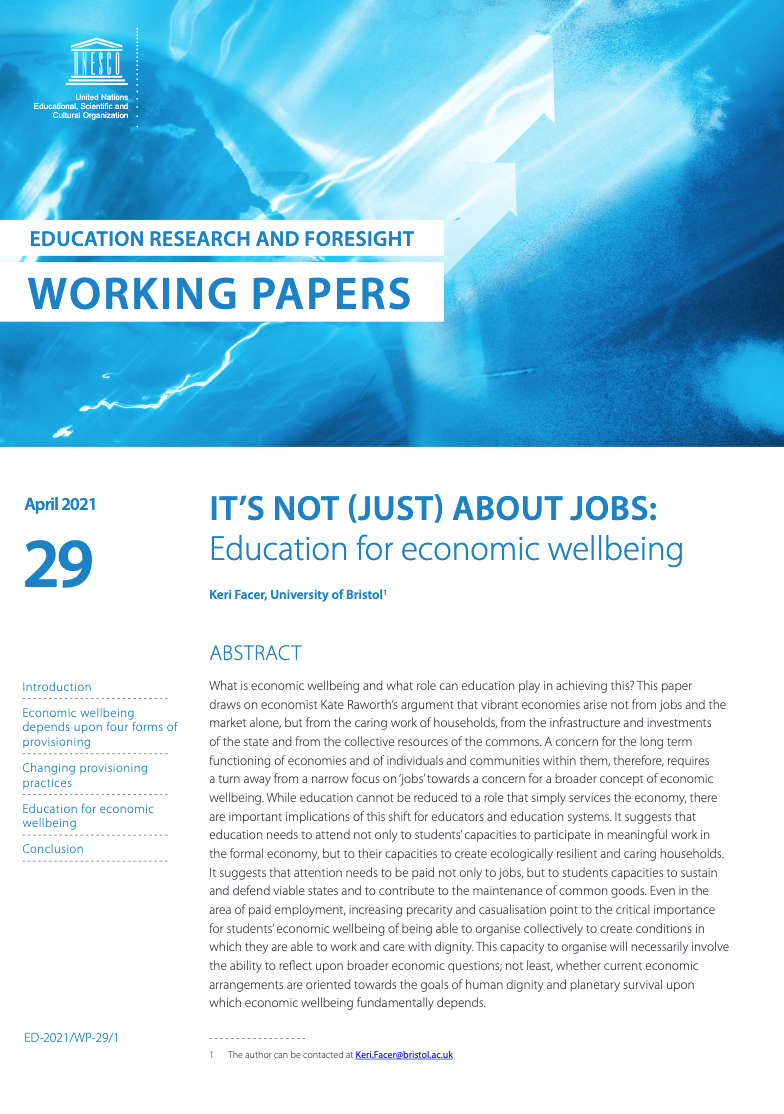
Author: UNESCO
Audience: Policymakers
Languages: English
Geographical Scope: Regional
Education’s role in relation to the economy is contested. One position is that education should equip young people to compete for jobs in the commercial marketplace. A contrary position is that education is precisely separated from the market so that young people can develop the relationships and capabilities that will allow them to thrive in society more broadly. This paper argues that rather than getting caught up in this longstanding debate we may find common ground if we ask a different question, namely: what sort of education will enable young people to create long-term economic wellbeing for themselves, their families and their communities?
Economic wellbeing refers to the personal and collective ability to mobilise economic, social and material resources to achieve personal and collective wellbeing. This ability can be understood to depend upon what the economist Kate Raworth calls ‘provisioning practices’ that provide goods, services, care, materials, and the basics of living (Raworth, 2017, p. 67). These provisioning practices include paid work in the marketplace in exchange for money, but also access to goods and services provided by households, by the commons and by the state. Education for economic wellbeing, in this perspective then, cannot be understood as a question of preparation for work alone.
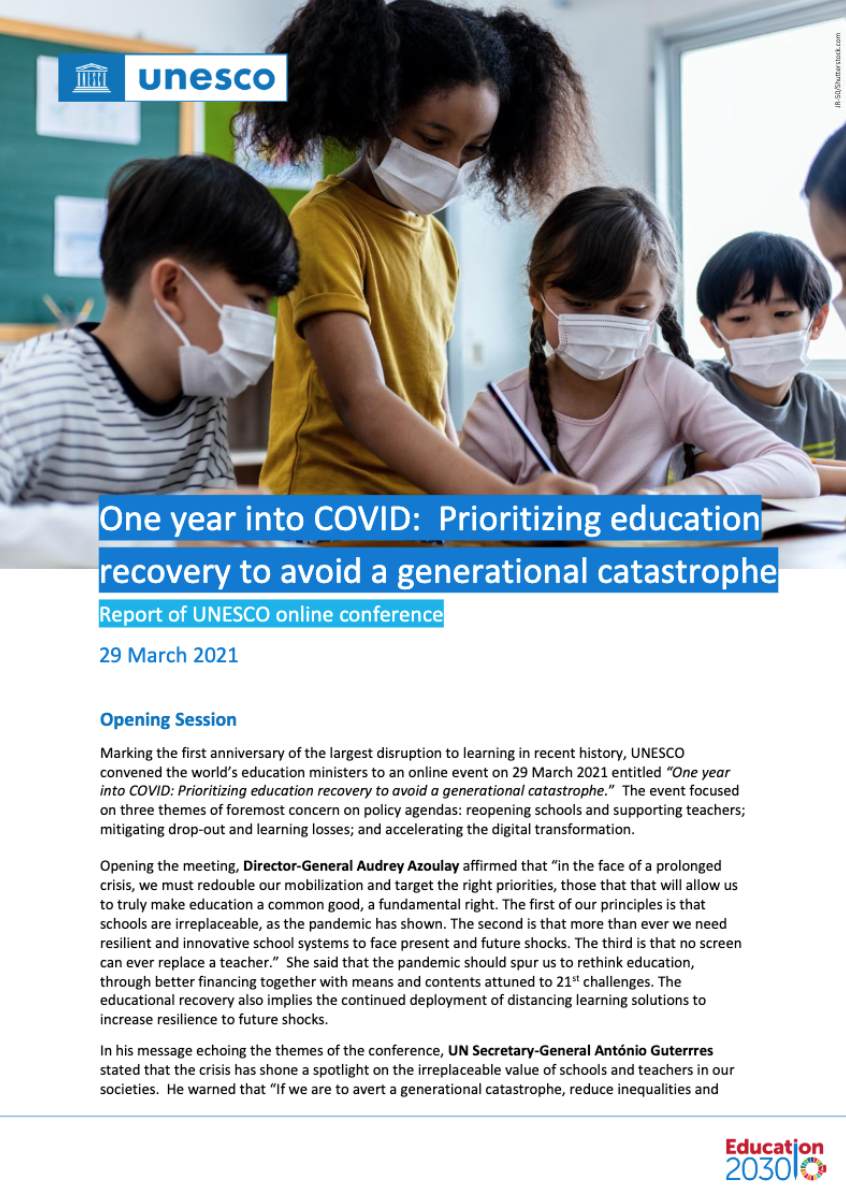
Author: UNESCO
Audience: Policymakers
Languages: English
Geographical Scope: Regional
During the pandemic, the majority of governments (133 countries) provided a mix of online, television and radio solutions to ensure learning continuity, providing strong ground to build more resilient education systems and bridge the digital divide. However, we are just beginning to obtain a global picture of learning loss: according to a study by the UNESCO Institute for Statistics, 100 million children and youth are projected to fall below the minimum proficiency level in reading because of COVID-19, erasing gains made over the past two decades. Ms Gianninistressed the importance of protecting teachers, including by making them a priority group in vaccination campaigns, and reiterated the call to protect education finance. According to the joint Education Finance Watch Study with the World Bank, 65% of low-income countries are cutting education budgets while education only accounts for 2% allocation in stimulus packages of 56 countries. Finally,she referred to the achievements of the Global Education Coalition, marking its first anniversary, noting its actions in 100 countries and missions around skills, teachers and connectivity.
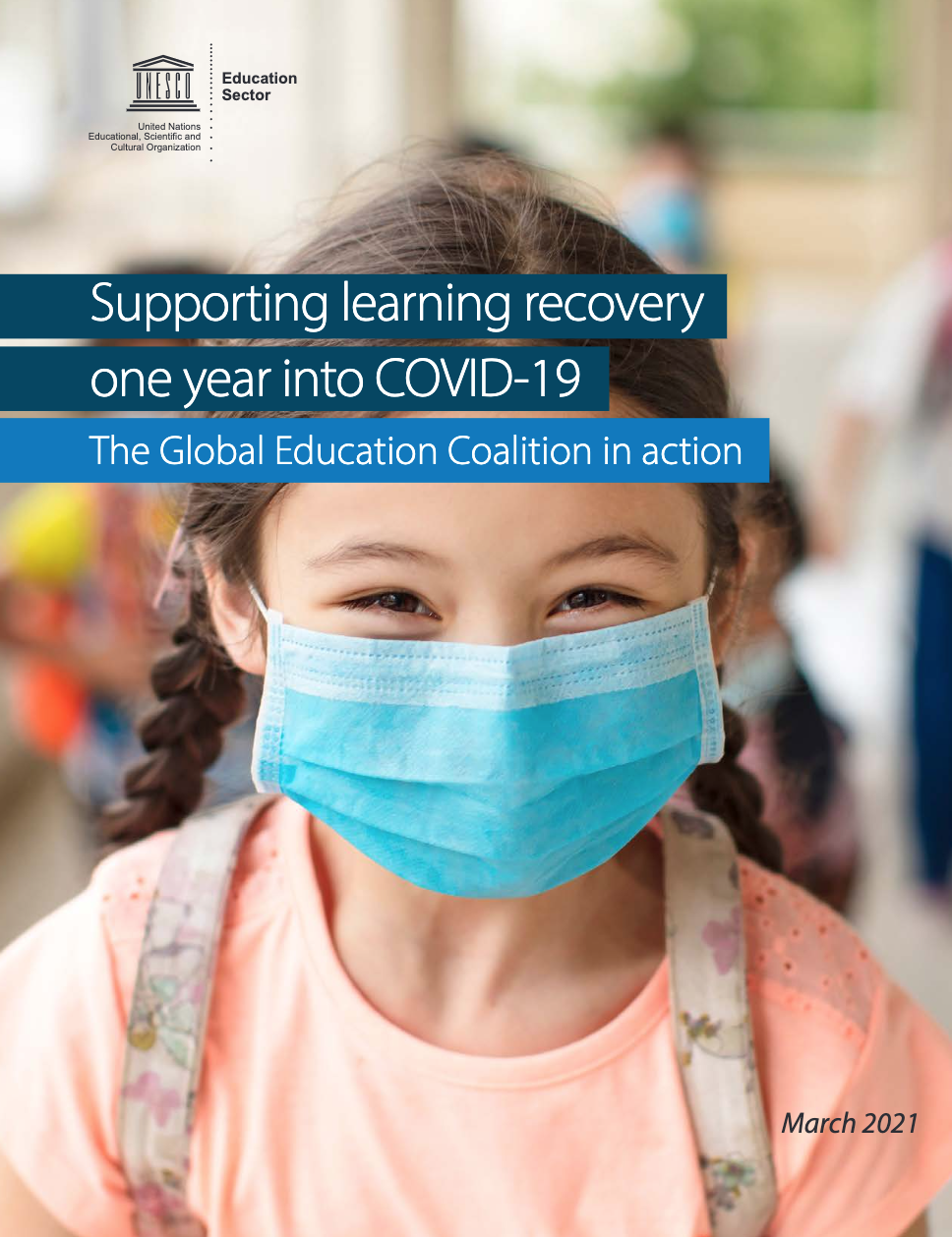
Author: UNESCO and Global Education Coalition
Audience: Policymakers
Languages: English
Geographical Scope: Regional
Exactly a year ago, the COVID-19 pandemic brought learning to a screeching halt worldwide, creating the most severe global education disruption in history. At the peak of the crisis, UNESCO data showed that over 1.6 billion learners in more than 190 countries were out of school. Over 100 million teachers and school personnel were impacted by the sudden closures of learning institutions. Today, two-thirds of the world's student population is still affected by full or partial school closures. In 29 countries, schools remain fully closed.
The pandemic has exposed and deepened pre-existing education inequalities that were never adequately addressed. As always, it has impacted vulnerable and marginalized learners the hardest. The economic downturn of the crisis is now adding pressure on national education budgets and aid at a time when increased funding is needed for education recovery. Despite critical additional funding needs, two-thirds of low- and lower-middle-income countries have cut their public education budgets since the start of the pandemic, according to a recent joint report by the World Bank and UNESCO.
In October last year, UNESCO convened a Global Education Meeting where world leaders and partners expressed their commitments to protect education financing and safeguard learning from the devastating impact of the pandemic.
From the onset of the crisis, UNESCO and its more than 160 partners through the Global Education Coalition have been mobilized around three central themes - connectivity, gender and teachers - to ensure that learning never stops during this unprecedented crisis.
From keeping schools open to bridging the digital divide -- from addressing dropouts and learning losses to calling for more education funding - UNESCO has been leading the way through intensive partnerships and innovations during the past year to prevent a "generational catastrophe" and build more resilient and inclusive education systems.
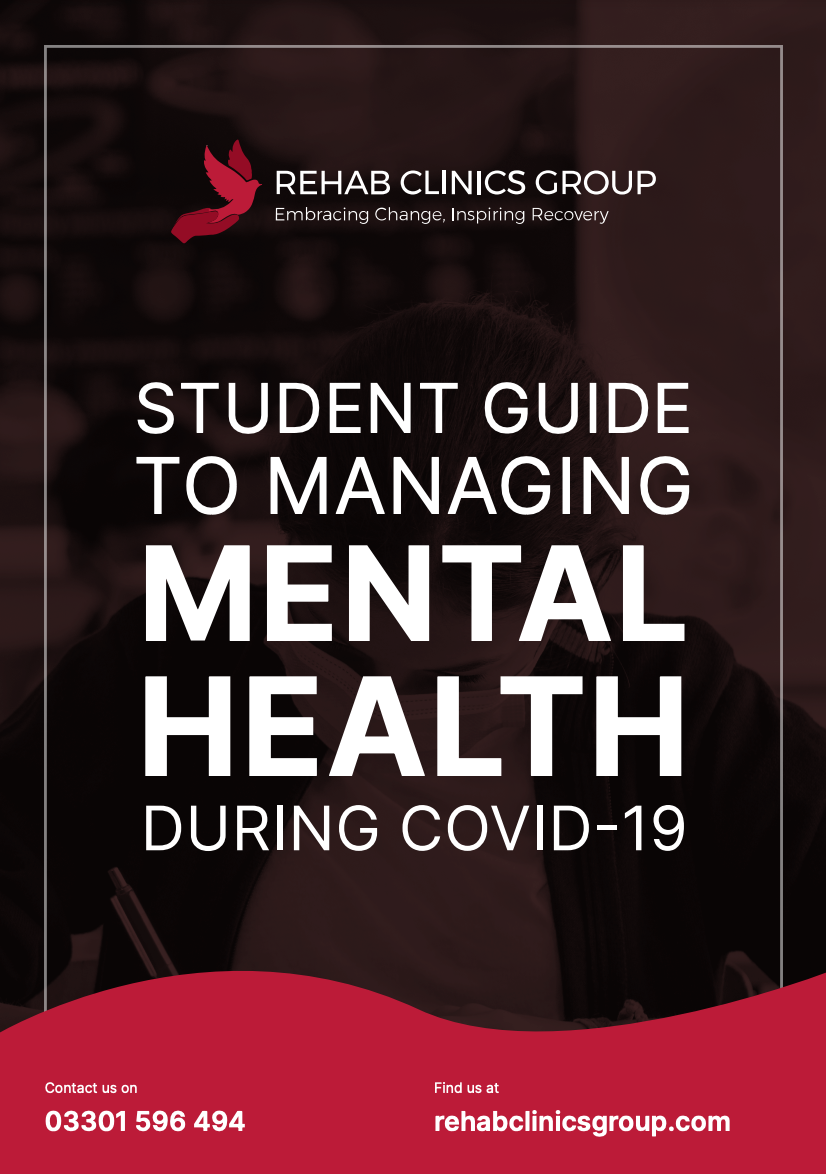
Author: Rehab Clinics Group
Audience: Teachers
Languages: English
Geographical Scope: Regional
This guide aims to give students practical tips and guidance on what steps they should take to help improve their mental health and development.
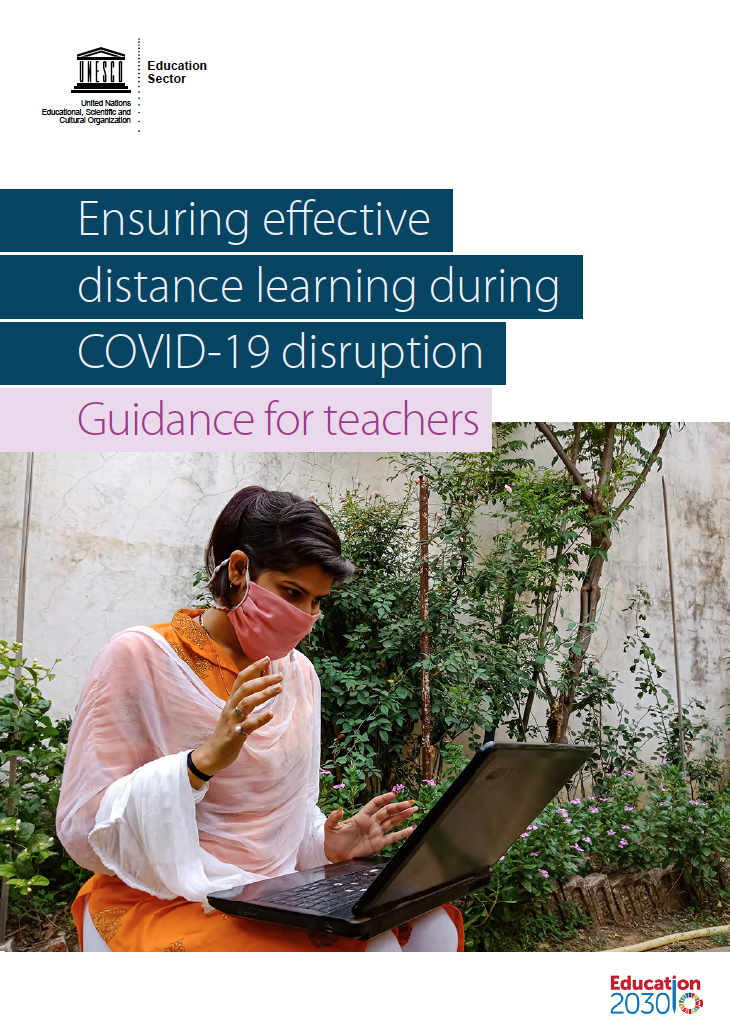
Author: UNESCO Unit for Technology and Artificial Intelligence in Education and the Smart Learning Institute of Beijing Normal University
Audience: Teachers
Languages: English
Geographical Scope: Regional
This Guidance aims to help teachers understand key issues related to home-based distance learning during COVID-19 school closures and design and facilitate effective learning activities. While we fully recognize the complementary relationship between formal and non-formal education, and continuity of studies across education and training levels throughout lifelong learning pathways, this Guidance includes resources, examples and tips for teachers and educators from pre-primary to upper-secondary level.
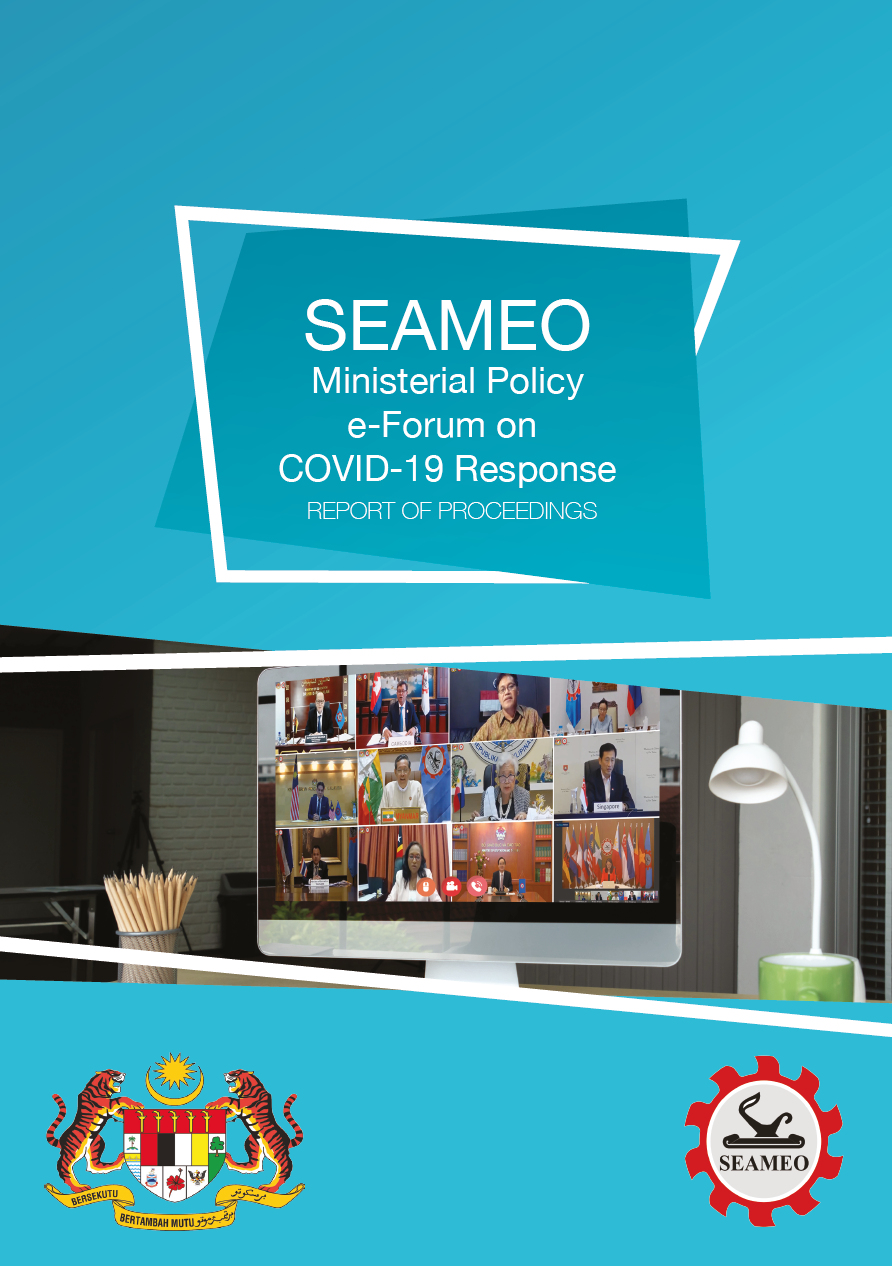
Author: SEAMEO Secretariat
Audience: Policymakers and General Public
Languages: English
Geographical Scope: Southeast Asia Region
The presentations of the Education Ministers focused on five essential elements—the immediate actions they have taken when education was disrupted, the alternative modalities they chose to ensure that learning continued at home, the evolving roles of teachers and parents in educating learners, the efforts they put in place to reach the disadvantaged and vulnerable, and the educational policies they enacted with regard to school reopening. Best practices, lessons learned, reflections, and positive discoveries were also shared in an effort to address the challenges brought on by the COVID-19 pandemic that caused unprecedented school lock-downs.
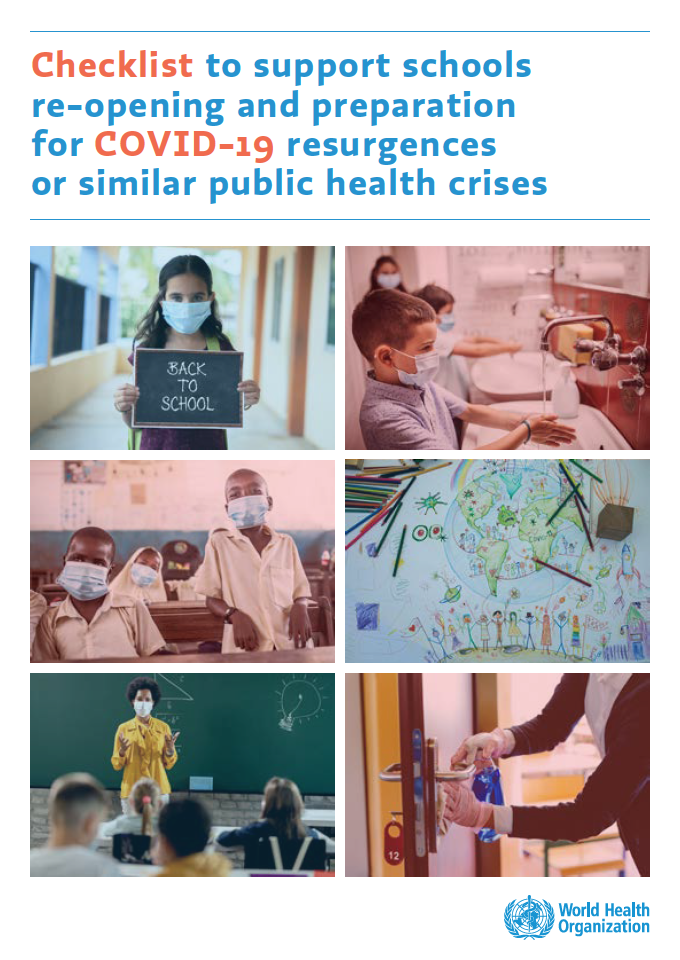
Author: World Health Organization
Audience: Policymakers, teachers, parents and caregivers.
Languages: English
Geographical Scope: Regional
The checklist was developed in accordance with the health-promoting schools principles and approaches.It highlights the importance of multi-level coordination (i.e. national, subnational and individual school levels) and both participatory and co-designed approaches among various stakeholders (e.g. school staff, teachers, students and parents). This approach aims to optimize compliance with public health and social measures based on social and cultural contexts, as described in Considerations for implementing and adjusting public health and social measures in the context of COVID-19.
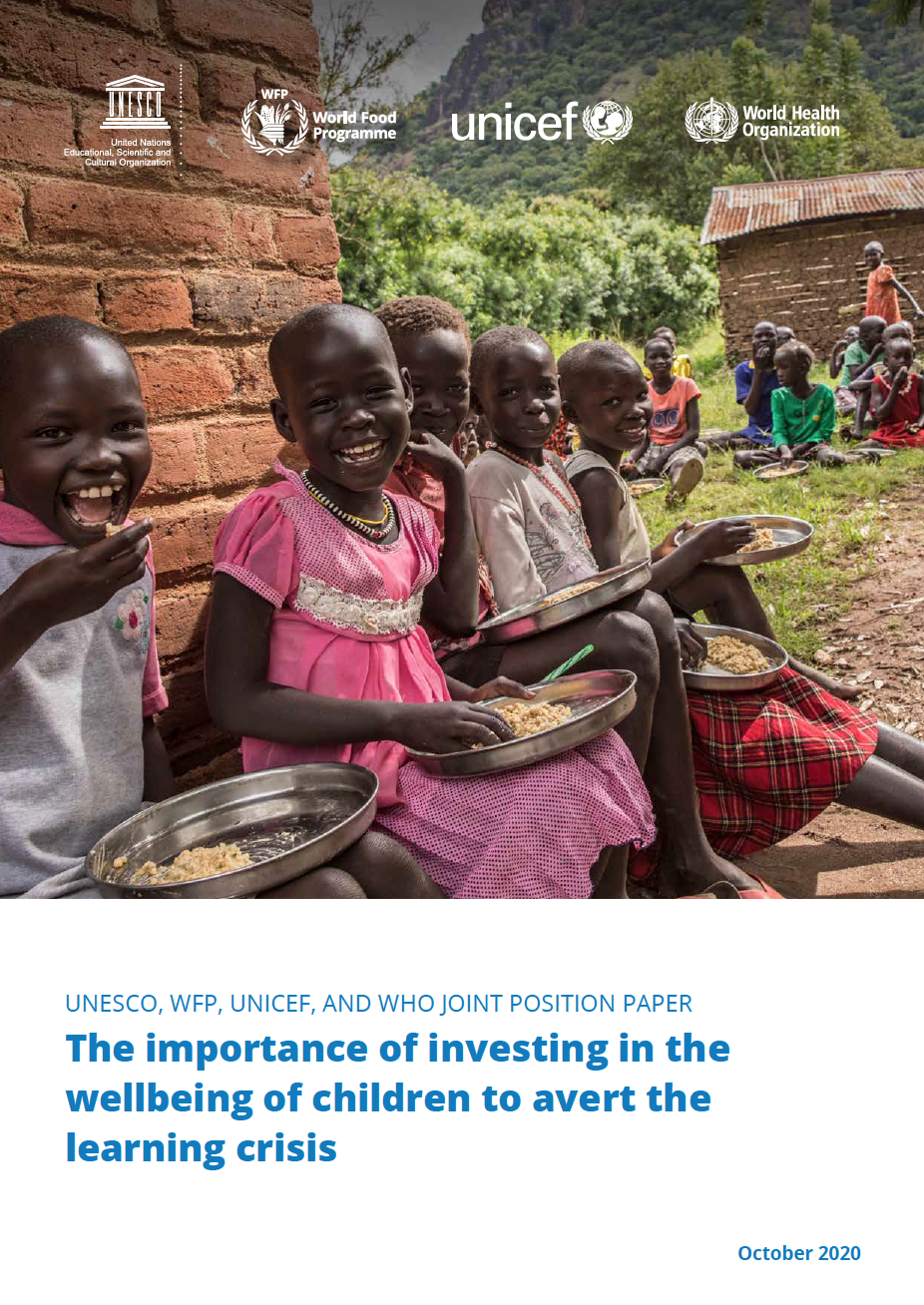
Author: UNESCO, UNICEF, WHO and WFP
Audience: Policymakers
Languages: English
Geographical Scope: Regional
This joint statement urges governments and the international community to uphold these commitments and to consider school health and nutrition programmes as a critical part of national response and recovery plans. You may find this helpful to advocate with government and other development partners to increase investment in these interventions.


